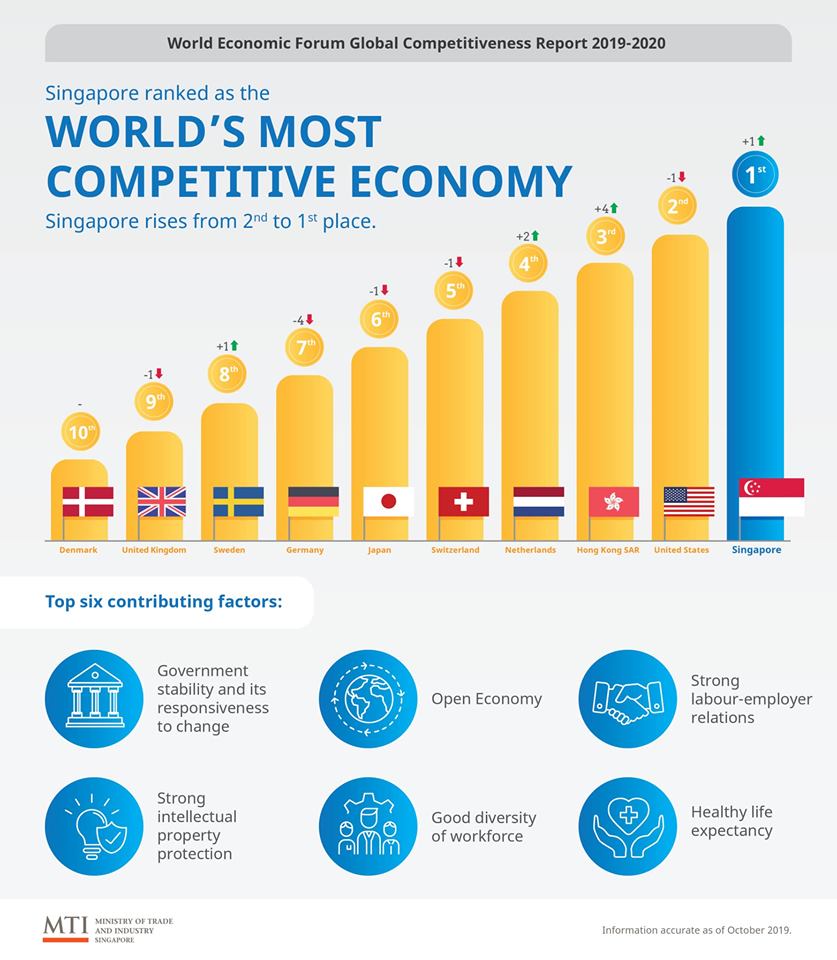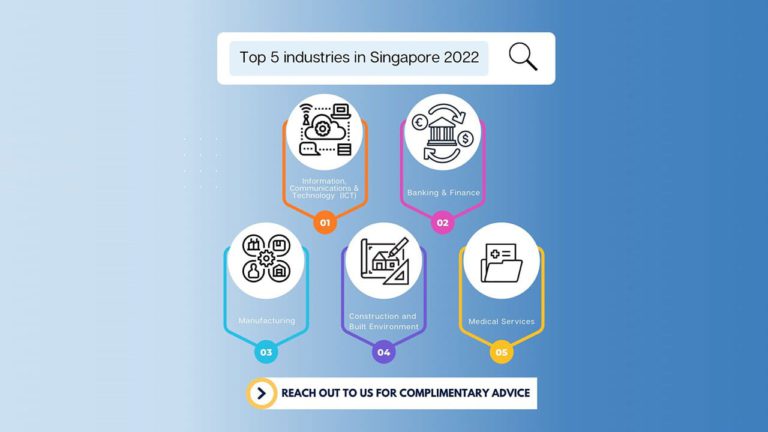Singapore has climbed to the top of the annual world rankings for competitiveness, this time, according to a report by the World Economic Forum (WEF). The city-state beat the United States, Hong Kong and the Netherlands to the top spot.
Singapore’s remarkable ascent to the pinnacle of global competitiveness is a testament to its unwavering dedication to excellence and innovation. The city-state’s latest achievement was underscored by the World Economic Forum’s (WEF) annual report, which crowned Singapore as the most competitive nation, outshining prominent contenders like the United States, Hong Kong, and the Netherlands.
This recognition by the WEF highlights Singapore’s exceptional economic policies, robust institutions, and forward-thinking strategies that have propelled it to the forefront of global competitiveness. The city-state’s ability to create an enabling environment for businesses to thrive is reflected in its pro-business regulatory framework, efficient governance, and emphasis on transparency.
Reasons For Singapore’s Competitive Economy
Investment in Human Capital: Singapore’s investment in human capital development and its relentless pursuit of innovation and technology have played a pivotal role in its rise to the top of the competitiveness rankings. The nation’s education system, which prioritises STEM disciplines, produces a skilled and adaptable workforce that is well-equipped to drive economic growth and meet the demands of a rapidly evolving global landscape.
Building and Upgrading of Infrastructure: Singapore’s commitment to research and development, coupled with substantial investments in infrastructure and digitalization, positions it as a leader in emerging industries such as advanced manufacturing, fintech, biotechnology, and sustainable technologies. These sectors, along with the nation’s ability to attract top talent and foster a culture of entrepreneurship, contribute to its overall competitiveness and long-term economic sustainability.
Connectivity and Networks: Singapore’s strategic geographical location, combined with its excellent connectivity and world-class logistics networks, further enhances its competitive advantage. The city-state serves as a gateway to not only the thriving markets of Southeast Asia but also as a regional headquarters for multinational corporations expanding into Asia-Pacific.
The achievement of topping the competitiveness rankings underscores Singapore’s ability to continuously reinvent itself and adapt to changing global dynamics. The government’s commitment to creating a conducive business environment, coupled with its forward-looking policies and agile response to emerging challenges, positions Singapore as a model for other nations striving to enhance their competitiveness on the global stage.
“We must continue to build on our strong fundamentals, improve the capabilities of our enterprises, transform our industries and ensure that our workers are well-equipped with the right skills to stay competitive.”
Chan Chun Sing
The Global Competitiveness Report evaluates countries along 12 basic pillars, including the strength of their institutions, capability for innovation and workforce skills among others. They key takeaways for us as immigration professionals are :
- The pillars which Singapore ranked highly at are in tandem with the key reasons for individuals to settle in Singapore as PRs or Citizens
- There is much room for improvement in the areas of labour markets and the foreign talent policies
- While having the ability to attract MNCs and Tech bigwigs such as Google, Facebook and LinkedIn, the local talent pool may not offer the necessary expertise these companies require
- The gap between the skills of its current and future workforce underscores the need for lifelong learning
What are the Impacts on Singapore?
This is not the first time Singapore has been recognised as the world’s most competitive economy. Singapore is an attractive place for businesses, investors, and foreign talent to thrive and seize opportunities in. Due to Singapore’s small size, it is highly dependent on an open and free economy. Without foreign inputs, Singapore’s economy can take a tumble. To improve Singapore’s standing as a competitive economy, Singapore has to improve certain areas such as:
- Talented pool of workforce for growing industries such as tech, finance, and advanced manufacturing.
- Ability to attract investors and businesses into Singapore and promote entrepreneurship.
- Retaining foreign talent.
Singapore has been updating its immigration policies to adapt to economic changes and yet manages to still align to its economic goals. With a focus on skills transfer, Work Pass policy changes accommodate to the government’s vision of attracting top talents globally while being fair to locals’ chances for job opportunities. To retain foreign talent, Singapore can expect more Permanent Residency and Citizenship being approved to deserving foreigners. Some of the pointers above present opportunities in sharpening the talent pool and funneling only qualified applicants to attain Singapore PR and Citizenship approvals. This also echoes what the authorities have been implementing in the last few years thru the selective immigration policy.
More businesses and investments are also expected to come into Singapore. These are the mechanisms that create jobs, therefore, attracting talents worldwide. With the government’s help, Singapore has a well-rounded economic ecosystem.







